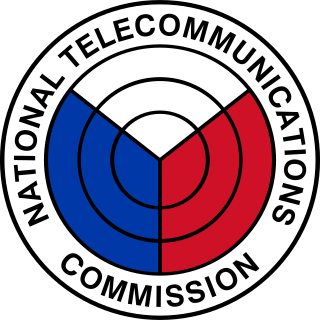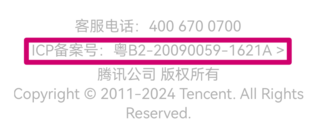The People's Republic of China possesses a diversified communications system that links all parts of the country by Internet, telephone, telegraph, radio, and television. The country is served by an extensive system of automatic telephone exchanges connected by modern networks of fiber-optic cable, coaxial cable, microwave radio relay, and a domestic satellite system; cellular telephone service is widely available, expanding rapidly, and includes roaming service to foreign countries. Fiber to the x infrastructure has been expanded rapidly in recent years.
China censors both the publishing and viewing of online material. Many controversial events are censored from news coverage, preventing many Chinese citizens from knowing about the actions of their government, and severely restricting freedom of the press. China's censorship includes the complete blockage of various websites, apps, video games, inspiring the policy's nickname, the Great Firewall of China, which blocks websites. Methods used to block websites and pages include DNS spoofing, blocking access to IP addresses, analyzing and filtering URLs, packet inspection, and resetting connections.

China has been on the Internet intermittently since May 1989 and on a permanent basis since 20 April 1994, although with heavily censored access. In 2008, China became the country with the largest population on the Internet and, as of 2024, has remained so. As of July 2023, 1.05 billion use internet in China.
The Commission for Science, Technology and Industry for National Defense was a civilian ministry within the State Council of the People's Republic of China, responsible for setting policy for defense procurement. It was considered as the Chinese counterpart of DARPA of the US. The ministry was formed in 1982 to centralize Chinese defense procurement and technology whose responsibility had been distributed among several agencies. In March 2008, COSTIND was merged into a new super bureaucracy called the Ministry of Industry and Information Technology (MIIT) and renamed as the State Administration for Science, Technology and Industry for National Defence (SASTIND). Former COSTIND deputy director, Chen Qiufa, was named as the head of SASTIND.
The Australian Communications and Media Authority (ACMA) is an Australian government statutory authority within the Communications portfolio. ACMA was formed on 1 July 2005 with the merger of the Australian Broadcasting Authority and the Australian Communications Authority.
A timeline of China's media-related history, including computer hardware, software development, the history of the Internet, etc.
The telecommunications industry in China is dominated by three state-run businesses: China Telecom, China Unicom and China Mobile. The three companies were formed by restructuring launched in May 2008, directed by the Ministry of Information Industry (MII), National Development and Reform Commission (NDRC) and the Minister of Finance. Since then, all three companies gained nationwide fixed-line and cellular mobile telecom licenses in China. In 2019, all three telecoms were issued 5G national licenses.

The Ministry of Transport of the People's Republic of China is an agency responsible for railway, road, air and water transportation regulations in China. It is a constituent department of the State Council.

The National Telecommunications Commission is an attached agency of the Department of Information and Communications Technology responsible for the supervision, adjudication and control over all telecommunications services and radio and television networks throughout the Philippines.
Over the past decade, there has been an increase in the use of information and communications technologies (ICTs) in China. As the largest developing country in the world, China faces a severe digital divide, which exists not only between mainland China and the developed countries, but also among its own regions and social groups.
The Internet in Zimbabwe has seen rapid expansion in recent years. The Internet country code top-level domain is .zw. In 2009, the Mugabe-Tsvangirai Government of National Unity established a Ministry of Information and Communications Technology to focus on ICT growth and development.

ICP license is a permit issued by the Chinese Ministry of Industry and Information Technology (MIIT) to permit China-based websites to operate in China. The ICP license numbers for Chinese websites can often be found on the bottom of the front webpage.
The National Communications Commission is an independent statutory agency of Executive Yuan of Taiwan responsible for regulating the development of the telecommunication and broadcasting industries, promoting competition and consumer protection, and regulating licensing, radio frequency and spectrum, programming content, communications standards and specifications in Taiwan. The NCC is considered to be Taiwan's equivalent of the Federal Communications Commission (FCC) in the United States, Ofcom in the United Kingdom and the Australian Communications and Media Authority (ACMA) in Australia. The current Chairperson is Chan Ting-I.

Green Dam Youth Escort is content-control software for Windows developed in the People's Republic of China (PRC) which, under a directive from the Ministry of Industry and Information Technology (MIIT), was to take effect on 1 July 2009, as a mandatory pre-install, or have the setup files on an accompanying compact disc, for all new personal computers sold in mainland China, including those imported from abroad. Subsequently, this was changed to be voluntary. End-users, however, are not under a mandate to run the software.
Ministry of Information and Communications is the government ministry in Vietnam. It is responsible for administration and regulation of newspapers, publishing, the postal service, telecommunications, internet, broadcasting, radio and radio frequency, information technology, electronics, television and national media infrastructure.
Xia Jun, a Chinese economist and telecom researcher, is currently Professor at Beijing University of Posts and Telecommunications (BUPT) School of Economics and Management, Beijing, China.
The Network Access License (NAL) is mandatory for telecommunication equipment that is exported to or sold in China. This license applies to telecommunication equipment that is connected to the public telecommunication network. For receiving the Network Access License, an application has to be submitted at the Ministry of Industry and Information Technology (MIIT) in Beijing. Among others, the Ministry of Industry and Information Technology is responsible for the Chinese regulation and development of the Internet, wireless, broadcasting, communications and production of electronic and information goods, and the promotion of the national knowledge economy.
China Telecom Corporation Limited (CT) is a Chinese telecommunications company. It is one of the red chip listed companies of state-owned China Telecommunications Corporation. Its H shares have been traded on the Stock Exchange of Hong Kong since 15 November 2002. It is a constituent of the Hang Seng China Enterprises Index, the index for the H shares of state-controlled listed companies. The company was also listed on the New York Stock Exchange until January 2021. China Telecom is the second-largest wireless carrier in China, with 362.49 million subscribers as of June 2021. China Telecom was a brand of China Telecommunications Corporation, but after the market liberalization of China, the state-owned enterprise spun off the brand and operated it as a separate company, floating it on the Hong Kong Stock Exchange.

The State Administration for Market Regulation is a Chinese ministerial-level agency directly under the State Council of the People's Republic of China responsible for market supervision and management. SAMR was established in 2018. It is China's primary antitrust regulator.






